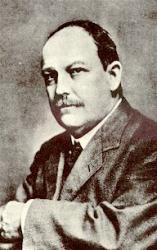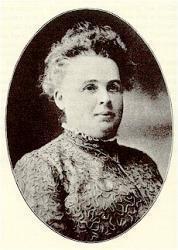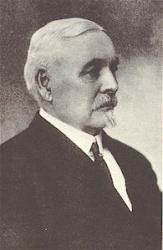Planning worship?
Check out our sister site, ZeteoSearch.org,
for 20+ additional resources related to your search.
- |
User Links
Person Results
‹ Return to hymnal





Export as CSV
Justin Heinrich Knecht

1752 - 1817 Person Name: Justin H. Knecht Hymnal Number: 205 Composer of "[O Jesus, Thou art standing]" in Assembly Songs Justin Heinrich Knecht Germany 1752-1817. Born at Biberach Baden-Wurttemberg, Germany, he attended a Lutheran college in Esslingen am Neckar from 1768-1771. Having learned the organ, keyboard, violin and oratory, he became a Lutheran preceptor (professor of literature) and music director in Biberach. It was a free imperial city until 1803 and had a rich cultural life. He became organist of St. Martin’s Church in 1792, used by both Lutherans and Catholics, and was there for many years. He led an energetic, busy musical life, composing for both the theatre and church, organizing subscription concerts, teaching music theory, acoustics, aesthetics, composition, and instruments at the Gymnasium, affiliated to the Musikschule in 1806. He went to Stuttgart in 1806 in hopes of a post there as Kapellmeister, serving two years as Konzertmeister, but he was appointed Direktor Beim Orchester by the King of Wurttemberg in 1807. However, he returned to his former life in 1808 and remained there the rest of his life. He died at Biberach. He wrote 10 vocals, 11 opera and stage works, one symphony, 3 chamber music instrumentals, 7 organ works, 4 piano works, and 6 music theories. He was an author composer, editor, contributor, musician, compiler, and lyricist.
John Perry
Justin Heinrich Knecht
A. Ewing
1830 - 1895 Hymnal Number: 231 Composer of "[Jerusalem, the golden]" in Assembly Songs Alexander C (Rex) Ewing United Kingdom 1830-1895. Born at Aberdeen,Scotland, he studied music and German at Heidelberg University and law in Aberdeen. However, he did not qualify as a lawyer. A member of the Aberdeen Harmonic Choir and the Hadyn Society of Aberdeen, he was regarded as the most talented young musician in the city. He became an author, musician, editor, composer, and translator. He married Juliana Horatia Gatty in 1867. She died in 1885, and he remarried Elizabeth Margaret Cumby in 1886. He was a career officer in the British Army's Commissariat Department and subsequently the Army Pay Corps. He served at Constantinople during the Crimean War, thereafter in China for six years, then in Ireland during the Fenian Uprising. He was then in New Brunswick just after England created the British North American Act, creating the Dominion of Canada. He then went to Fredericton, where he played the organ and sang at Christ Church Cathedral. He was transferred to Aldershot. In 1879 he went to Malta, then served in Ceylon before returning to England. He reached the rank of Lt. Col. He translated several works by other authors. He retired and spent the last six years of his life in Taunton, England, where he died.
John Perry
A. Ewing
George Heath
1745 - 1822 Hymnal Number: 216 Author of "My Soul, Be on Thy Guard" in Assembly Songs Rv George Heath DD United Kingdom 1745-1822. Born at Exeter, Devon, England, he was educated at the Dissenting Academy and King’s College, Cambridge. He married Mary Ann Kean, and they had 4 children: Louisa, John, Charles, and Benjamin (also a minister). He served as pastor of the Honiton, Devonshire, Presbyterian Church, but proved unworthy and was dismissed for cause. He later became a Unitarian minister. In 1781 he published “Hymns & poetic essays sacred to the worship of the Deity”. He also authored a “History of Bristol”. He became Headmaster of Eton College (1792-1802). He joined the Anglican Church and became Canon of Windsor (1800-1822), Rector of Monks Risborough, Vicar of Sturminster Marshall, Dorset, Vicar of Piddletown, Vicar of East Beachsworth (1805-1814), and Fellow of the Royal Society (1795-1822). He was appointed to the 4th stall in St. George’s Chapel in 1800, Windsor Castle, and died at his residence in the Cloisters, Windsor Castle.
John Perry
=======================
Heath, George, became pastor of a Presbyterian Church at Honiton, Devon, in 1770, and died in 1822. He published a History of Bristol, 1797. Also Hymns and Poetic Essays Sacred to the Public and Private Worship of the Deity, &c, Bristol, 1781, from which "My soul, be on thy guard" (Steadfastness), is taken.
--John Julian, Dictionary of Hymnology, Appendix, Part II (1907)
George Heath
Lizzie Tourjée
1858 - 1913 Person Name: Lizzie S. Tourjee Hymnal Number: 214 Composer of "[There's a wideness in God's mercy]" in Assembly Songs Lizzie Shove Tourjee Estabrook USA 1858-1913. Born in Newport, RI, daughter of a famed music educator, organist, and composer, he encouraged her efforts at composing. When 17, she composed the tune for the famous hymn “Wellesley”. When her father, founder of the New England Conservatory of Music, became editor of the Methodist hymnal, he included her tune in the 1878 edition of the book, naming it for the college she attended, as she had written the tune while attending that school. She married Franklin Estabrook in 1883. They had a son, Rufus. She taught music and was an organist in Auburndale, MA. She died in Newton, MA.
John Perry
Lizzie Tourjée
J. S. Fearis

1867 - 1932 Hymnal Number: 113 Composer of "[Somewhere the sun is shining]" in Assembly Songs John Sylvester Fearis, 1867-1932
Born: February 5, 1867, Richland, Iowa.
Died: September 2, 1932, Lake Geneva, Wisconsin.
Fearis’ father was a successful singing school teacher, and a painter by trade. At a young age, John learned to read music in his father’s classes. He was passionately fond of music, and, taking lessons on the reed organ, he was soon able to play in Sunday school and church. Later he took charge of the church choir, and taught singing classes in nearby towns. He wrote his first hymn tune at age 16. He eventually joined the editorial staff of the Choir Leader, published by the Lorenz Publishing Company in Dayton, Ohio.
Sources--
Choir Herald, December 1932, p. 219
Emurian, p. 17
Hall, pp. 393-4
Lyrics--
Brightly Beams Another Morning
Children’s Day
Show Me the Way, My Shepherd
What Comfort to Our Hearts
What Wonderful Love Is the Love
Music--
Be Thou Exalted
Beautiful Isle of Somewhere
God May Call for You
Little Raindrops
Promise Made to Mother, The
Songs in the Night
Show Me the Way, My Shepherd
There’s Light for a Step
Wherever He Leads Me I’ll Go
--hymntime.com/tch
J. S. Fearis
Flora H. Cassel

1852 - 1911 Hymnal Number: 22 Composer of "[I am a stranger here, within a foreign land]" in Assembly Songs
Flora H. Cassel
E. T. Cassel
1849 - 1930 Person Name: Dr. E. T. Cassel Hymnal Number: 24 Author of "Loyalty to Christ" in Assembly Songs
E. T. Cassel
Jemima Luke

1813 - 1906 Person Name: Mrs. Jemima Luke Hymnal Number: 144 Author of "The Sweet Story" in Assembly Songs Luke, Jemima Thompson, the wife of Rev. Samuel Luke, an Independent minister of England, was the daughter of Thomas 422 Thompson, a philanthropist, and was born at Colebrook Terrace, Islington, August 19, 1813. When only thirteen years of age she began writing for the Juvenile Magazine. She published a volume titled The Female Jesuit in 1851 and A Memoir of Eliza Ann Harris, of Clifton, in 1859, but her name is known to the Christian world almost wholly through the one hymn found in this volume. Mrs. Luke died February 2, 1906.
I think when I read that sweet 682
Hymn Writers of the Church, 1915, Charles Nutter
===============
Luke, Jemima, née Thompson, daughter of Thomas Thompson, sometime of Bath, was born at Colebrooke Terrace, Islington, Aug. 19, 1813, and was married to the late Samuel Luke, a Congregational Minister, in 1843. She was an anonymous contributor to The Juvenile Magazine at the age of 13, and subsequently pub. several works, including The Female Jesuit, 1851; A Memoir of Eliza Ann Harris, of Clifton, 1859, &c. Mrs. Luke is known to hymnody through her hymn:—
I think when I read that sweet story of old. [The Love of Jesus.] It is recorded that this hymn was composed in a stage coach in 1841, and was designed for use in the village school, near her father's seat, Poundsford Park. It was published anonymously in the Leeds Hymn Book, 1853, No. 874, in 3 stanzas of 8 lines, and has since come into use through children's hymn-books in most English-speaking countries.
--John Julian, Dictionary of Hymnology (1907)
Jemima Luke
C. C. Case

1843 - 1918 Hymnal Number: 60 Composer of "[While we pray and while we plead]" in Assembly Songs Charles Clinton Case USA 1843-1918. Born in Linesville, PA, his family moved to Gustavus, OH, when he was four. His father was an accomplished violinist, but a neighbor gave him a small violin when he was nine, and he mastered it before he could read music. At age 16 he went to singing school (without parental consent), borrowing the money from a neighbor. C. A. Bentley, a prominent conductor, was his first vocal music instructor, and William Bradbury's “Jubilee” was the school textbook. For three winters in a row, he attended Bentley's singing school, working his father's farm in the summer. He married Annie Williams. In 1866 he studied music in Boston with B. F. Baker. He also studied under George Root, Horatio Palmer, Philip Bliss, George Webb, and others, hymnwriters in their own right. Soon after, Case began teaching music, and when James McGranahan moved two miles from his home, they became friends. Case wrote and edited a number of Gospel song books in his life. 6 works.
John Perry
C. C. Case


 My Starred Hymns
My Starred Hymns


